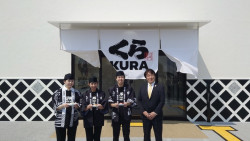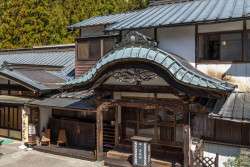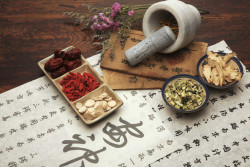
Originally published on metropolis.co.jp on July 2010

L to r: Eriko Imai, Hitoe Arakaki, Hiroko Shimabukuro and Takako Uehara. Courtesy of Vision Factory
“We were talking with each other like ordinary 20-something girls over dinner,” says Uehara. “It had been about seven years since we’d stood on stage together, and I knew I needed to remember I was ‘Takako Uehara of Speed.’”
The challenge for the group now, though, is that the J-pop scene has changed in the last decade. During their heyday, Speed were pitched as rivals to fellow Okinawan quartet MAX. Since then, girl groups have fallen out of fashion. Otaku acts AKB48 and Morning Musume maintain male followings, but only the electro-tinged trio Perfume enjoys mainstream popularity. In fact, it’s edgy and colorful Korean girl groups that have been making inroads into Japan—4Minute, 2NE1 and After School. So how does Speed feel about returning to compete in a music market where styles have moved on?
“Maybe each one of us has different feelings about it,” says Shimabukuro. “I think we let go of our stardom once and now we’re starting all over again from zero. We’ve been taking it slowly and considering what we want to do more this time.”
Speed’s incredible rise began when the girls met at Okinawa Actors School, famous for producing Namie Amuro and MAX. The band originally included seven to nine members, but when a TV show from Tokyo came calling, they were trimmed down to a quartet.
“We have no idea how four of us were selected or who decided it,” admits Imai.
In December 1995, the girls were introduced on the music-ranking program Yoru mo Hippare as younger sisters of Amuro—then, as today, the hottest pop star around. They asked the public to help think of a name.
“The names were like The Habus and Mongooses or Ryukyu Girls or Okinawa Girls—they were horrible!” says Imai. “We then decided [on Speed] unanimously.”
Within six months of relocating to Tokyo, the group had released its debut single, “Body & Soul.” The song spent 31 weeks on the charts and would be followed by five No. 1 singles, including “White Love” in October 1997, which sold an astounding 1.8 million copies.
Unlike most artists from Okinawa, Speed was signed to Toy’s Factory records rather than J-pop powerhouse Avex—a move the women say allowed them to be more expressive and creative. “At that time, there were no girls’ groups dancing in boys’ big clothes, and we told Toy’s Factory our starting point was TLC, so we had something fresh,” says Imai.
The teens lapped up their sudden success. “We drove a car around the town with windows down playing our songs at earsplitting volume,” reminisces Uehara. “We were so childish in private, but we enjoyed it.”
The group broke up at their peak, announcing the news in October 1999 and formally splitting the following March. Why? “Because of adolescence?” jokes Takako. “I was thinking, ‘I want to do what I want now.’”
The four young women set off to pursue their own dreams. Arakaki went to New York to study art and obtain a yoga teaching license. Uehara modeled, while Shimabukuro launched jazz outfit Coco d’Or. Imai was the most active, renaming herself Elly in 2005 and emerging as a solo singer who writes all her own material. But it was the birth of her son, who has a hearing disability, that would eventually provide an impetus for the group to reform.
“There is an annual TV charity show named 24 Hours TV, and we all participated in it in 2008,” Imai says. “I wanted to convey the songs of Speed to my son somehow… There was also a girl named ‘Nojiri’ suffering from a serious disease, who we met when we were about 14 years old, and she was about 10. Now she is 21 and she wished that she could listen to the songs of Speed again. So these two wishes led us to get back together.”
For their 2008 comeback single, “Ashita no Sora,” Speed reunited with the producer they’d worked with throughout their career—Hiromasa Ijichi. The old magic is still there, apparently: despite the group’s sound remaining much the same, the track rose to No. 3 on the charts. A new single, “Himawari—Growing Sunflower,” forms the basis of the current nationwide tour.
When asked how the public may take to the group’s re-emergence, Arakaki seems intent on retaining her Okinawan roots.
“I made up my mind to continue being a member of Speed until I become an old lady, even if we didn’t get together again,” she says. “I’ll treasure each moment with a spirit of nankuru naisa, which in Okinawan means ‘whatever will be will be.’”
- Nippon Budokan. July 16, 6:30pm, ¥6,500. Tel: Freegear 03-6804-3355.
- Zepp Tokyo, Aomi. Aug 1, 4pm, ¥3,900-¥4,200. Tel: Hot Stuff Promotion 03-5720-9999.







